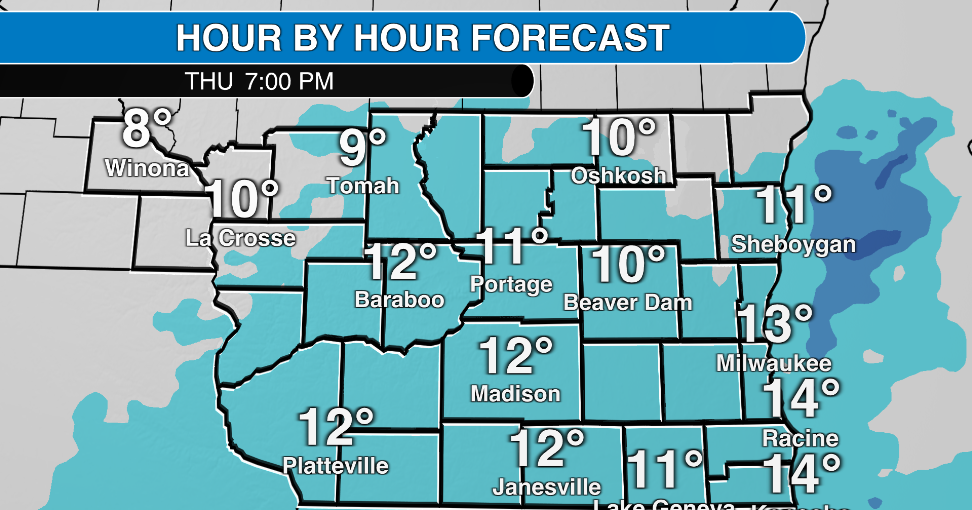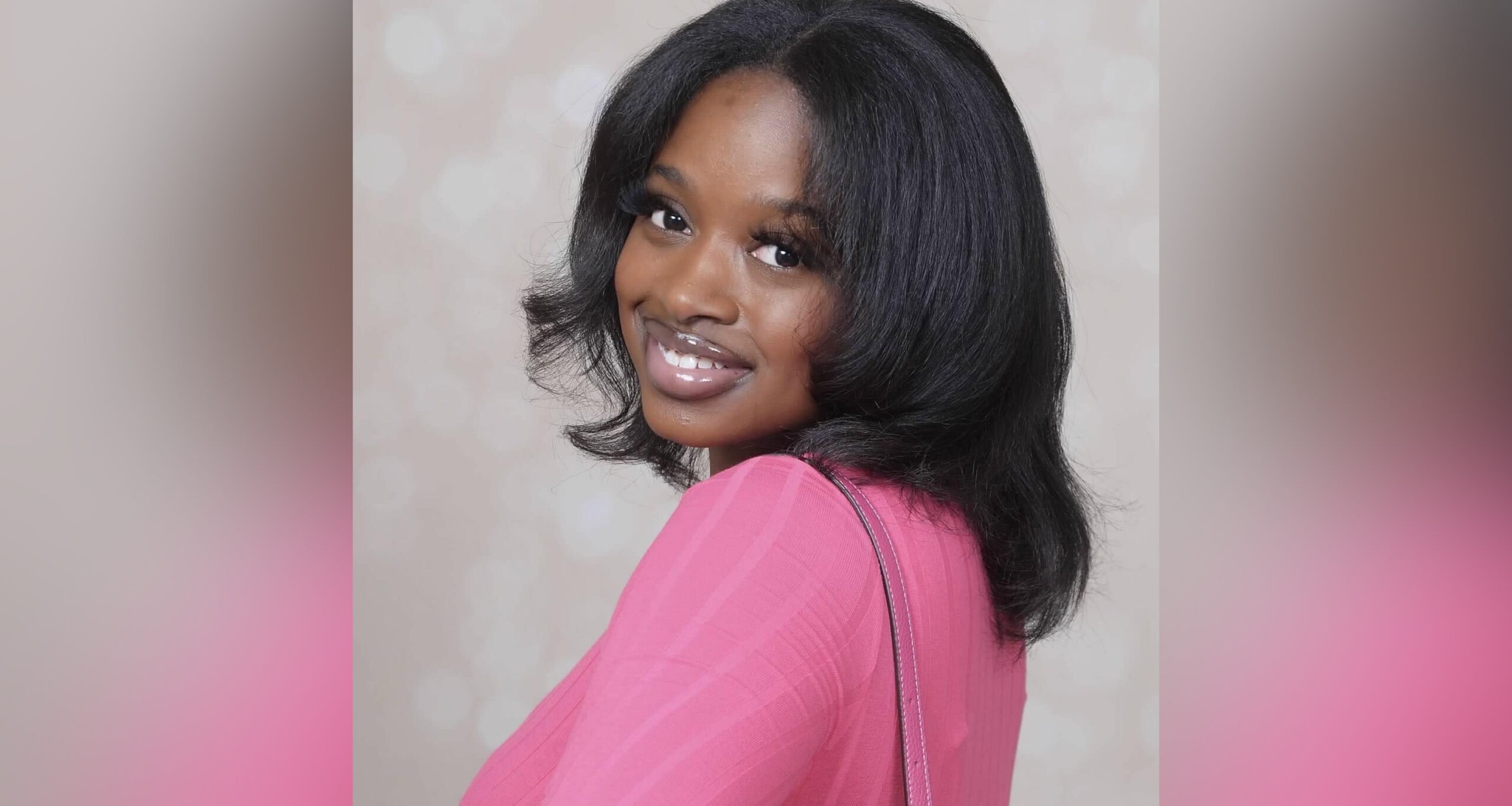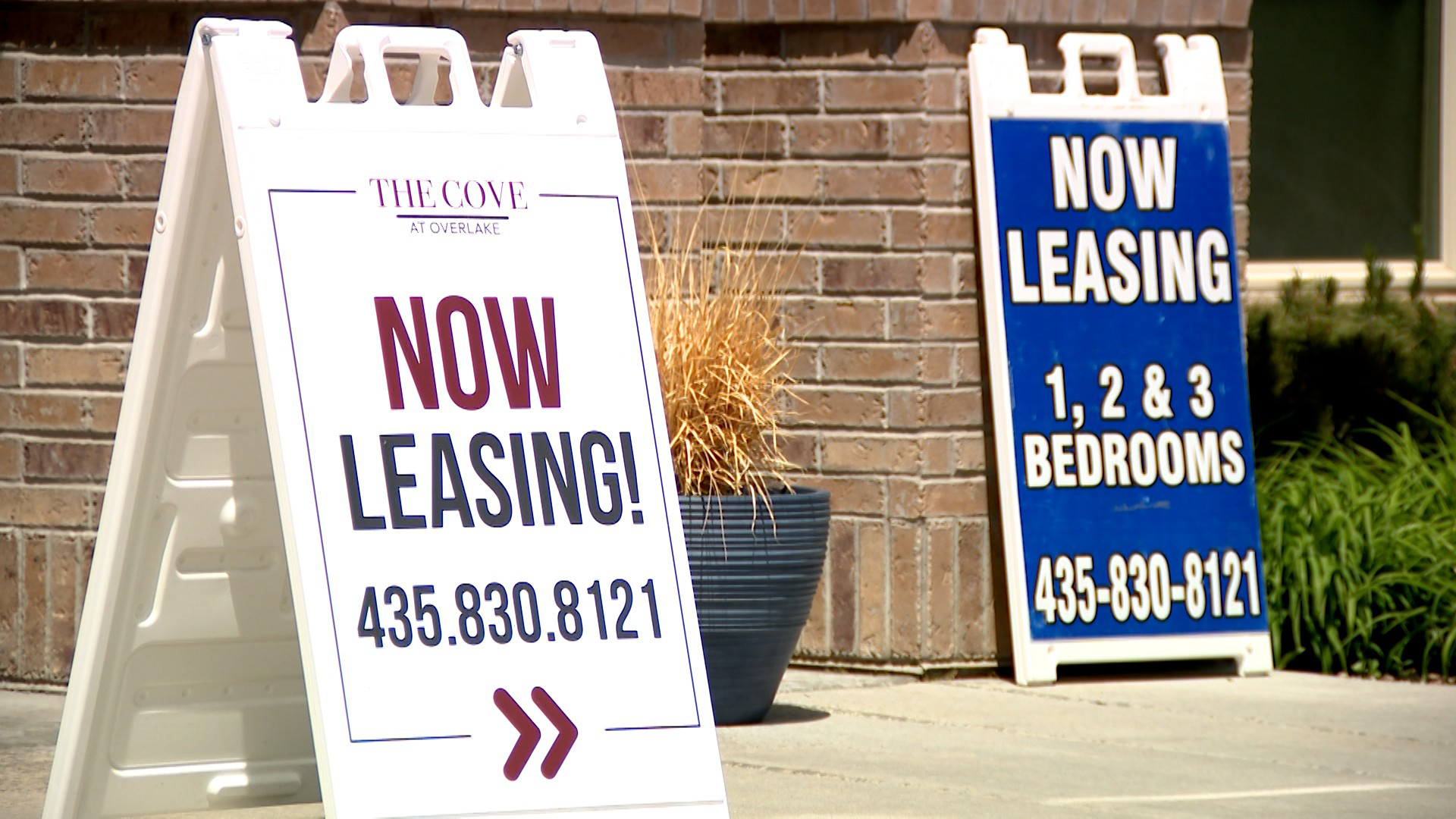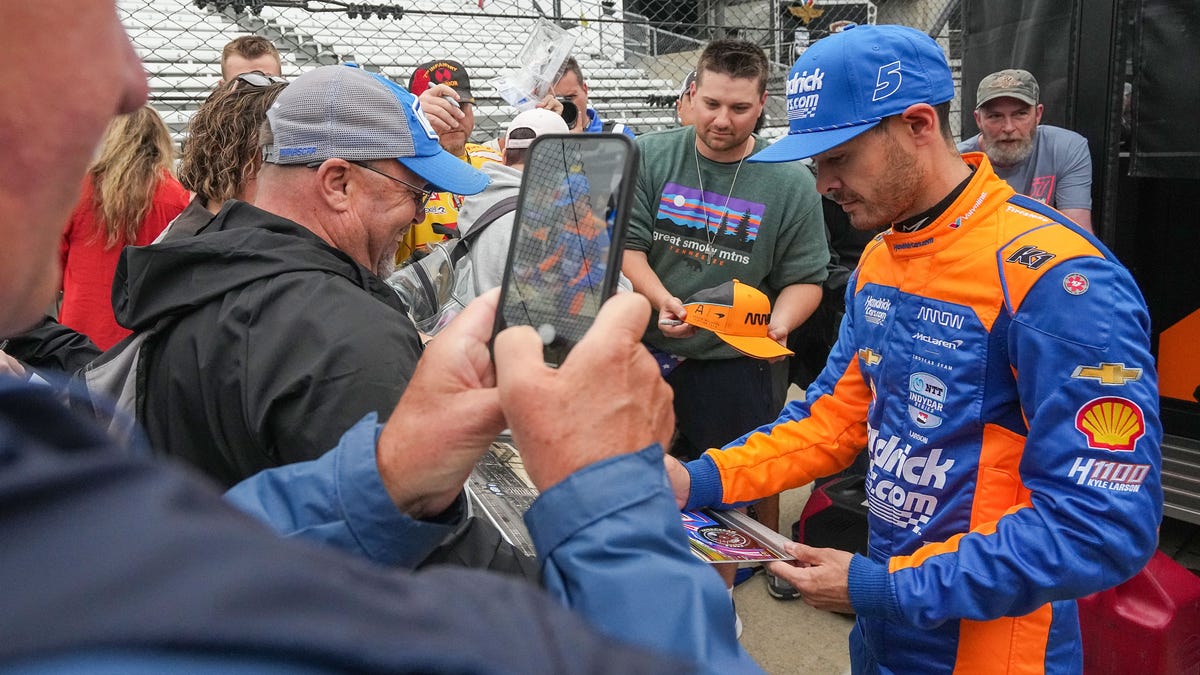A dry start to Thursday, but more snow will start to push in during the afternoon. See when the snow will peak, how much is forecast to fall, and when it will come to an end. Plus, what wind chills are expected? Find out in our weather update video.
Wisconsin
No relief yet, more snow for southern Wisconsin. Here’s what to expect through Friday

Wisconsin
Apparent Suspension of Student Groups at Wisconsin for Pro-Hamas Chalking

From FIRE’s letter sent yesterday to the University of Wisconsin (you can see the citations here); I generally trust FIRE’s factual summaries, but if there is any error in the below, I’ll of course be very glad to correct it:
FIRE is deeply concerned that UW-Madison has suspended two registered student organizations—Anticolonial Scientists and Mecha de UW Madison—amid criticism of chalk messages some group members allegedly wrote at an off-campus event earlier this month. Some of the messages expressed support for terrorist groups like Hezbollah and Hamas’s Al-Qassam Brigades, and advocated the use of violence against Israelis and Zionists in the Middle East.
The student groups are currently under interim suspensions, pending investigation, with UW stating that, because “[s]ome chalkings endorsed violence, supported terrorist organizations and/or contained antisemitic comments,” they could qualify as prohibited discriminatory harassment under the university’s RSO Code of Conduct. But that conclusion cannot constitutionally stand. The off-campus chalk messages constitute political speech wholly protected by the First Amendment, which requires UW, as a public institution, to respect the groups’ expressive and associational rights—even if some, many, or most people dislike their message.
There is, more specifically, no First Amendment exception that would remove protection from speech simply because it is deemed “anti-Semitic” or otherwise bigoted based on race or religion. Regardless of the viewpoint expressed, the rule is the same: Government officials cannot circumscribe expression on the basis that others find the ideas offensive or hateful.
This is particularly true at public colleges, where “conflict is not unknown,” and “dissent is expected and, accordingly, so is at least some disharmony.” The First Amendment instead “embraces such heated exchange[s] of views.”
The Supreme Court has long recognized the public’s interest “in having free and unhindered debate on matters of public importance” as “the core value of the Free Speech Clause of the First Amendment.” And there is simply no question that chalking support for any participants in the Israel/Hamas war—the reverberations of which have been felt globally for many months—constitutes expression on a matter of public concern, which is defined broadly as speech “relating to any matter of political, social, or other concern to the community.”
Nor is there evidence (despite UW’s suggestion) that the students’ political messages, written in chalk at a farmers’ market nearly a mile from campus, would approach the legal bars for either material support for terrorism or discriminatory harassment—even if those same words had been written on UW’s own sidewalks.
The Supreme Court defines discriminatory harassment in the educational context as only those statements which are unwelcome, discriminatory on the basis of protected status, and “so severe, pervasive, and objectively offensive that it can be said to deprive the victim[] of access to the educational opportunities or benefits provided by the school.” The U.S. Department of Education’s Office for Civil Rights has likewise clarified that discriminatory harassment “must include something beyond the mere expression of views, words, symbols, or thoughts that some person finds offensive.”
Current events do not change this analysis. Earlier this month, OCR reiterated that “offensiveness of a particular expression as perceived by some students, standing alone, is not a legally sufficient basis to establish a hostile environment under Title VI,” and that “[n]othing in Title VI or regulations implementing it requires or authorizes a school to restrict any rights otherwise protected by the First Amendment to the U.S. Constitution.” OCR’s letter also emphasized that campuses have options for addressing the impact of hostile speech that avoid offending the First Amendment, including by offering a variety of support services to affected students.
UW’s own discriminatory harassment policies and RSO rules reflect these appropriate limits on its ability to punish core political speech, with the RSO rules clearly stating they “will not be used to impose discipline for the lawful expression of ideas” and that “[t]he right of all students to seek knowledge, debate, and freely express their ideas is fully recognized by the University.” This is surely because, as you know, free expression is a “longstanding priority” at UW-Madison, which has a dedicated mission and a values statement focused on “Free Expression at UW-Madison.” That statement describes “the need for the free exchange of ideas through open dialogue, free inquiry, and healthy and robust debate,” as “inherent” to the university’s educational mission, “captured by our now-famous language about the importance of ‘that fearless sifting and winnowing by which alone truth can be found.’”
Student organizations play an important role in the healthy speech ecosystem that UW’s mission and values seek to foster. In turn, the First Amendment protects these groups’ expressive and associational rights, fostering their ability to organize around causes and to attempt to influence our institutions, communities, and country. Nor can universities subject the speech of students in RSOs to additional, viewpoint-based scrutiny.
Instead, student groups’ speech rights are broad, and they extend to expressing philosophical support for the use of force or violence. As the Supreme Court has held: “What is a threat must be distinguished from what is constitutionally protected speech,” including “political hyperbole,” given our country’s “profound national commitment to the principle that debate on public issues should be uninhibited, robust, and wide-open.”
Government actors may prohibit non-expressive conduct intended to provide material support, like property or services, to designated foreign terrorist organizations. But the First Amendment’s protection of robust debate prohibits government actors from limiting mere expressive activity or rhetorical support for such groups. That is so even where the net effect of the advocacy is to sway public opinion.
Despite what may be good intentions, UW does its community no service by censoring these controversial messages. Like many universities, UW is a community of people with sharply divergent views on a wide variety of issues. To the extent the chalked messages have informed UW students, faculty, and staff members of the presence of individuals with these views on campus, this should be seen as an opportunity for those who disagree either to engage with them in good faith—or, if they wish, to avoid such engagement. Censoring them will do nothing to change their minds, and will deny all parties the opportunity to learn from one another.
The First Amendment, and UW’s longstanding commitment to its attendant norms, are most relevant on campus at precisely the moments like these, when social and political unrest triggers high emotions, deep divisions, and the temptation to turn to censorship. When a university departs from its core principles at these key moments and resorts to silencing views it deems odious, it sends the message that the university has subordinated both the rights of its students and its mission of liberal education to the political demands of the day.
We therefore urge you in the strongest possible terms, in this difficult season for campus discourse, to stand by the university’s legal and moral obligations to respect students’ core expressive freedoms. This requires promptly reinstating the Anticolonial Scientists and Mecha de UW Madison student organizations, and publicly disavowing any ongoing investigation into their clearly protected political speech.
Given the urgent nature of this matter, we request a substantive response to our inquiry no later than close of business Thursday, May 23, 2024.
The legal analysis sounds quite right to me. Note that, even if the government could forbid chalking in various places (and it’s not clear whether it can), it can’t specially punish chalking that conveys particular views, including advocacy of foreign terrorist organizations and support for violence in foreign conflicts.
Wisconsin
Family of woman murdered, dismembered after date in Wisconsin notified about severed arm found at Waukegan Beach


The family of a 19-year-old woman who was murdered and dismembered after a date in Wisconsin has been notified after a severed arm was discovered at the Waukegan Beach.
The Waukegan Police Department responded around 8 p.m. Saturday to the Waukegan Municipal Beach, 201 East Sea Horse Drive.
A person walking along the beach saw what they believed to be a human arm on the ground.
Officers arrived and found the arm next to a fallen tree trunk at the beach.
The Lake County Coroner’s Office was notified and responded to the scene.


They confirmed the arm belonged to a human. The right arm was “mostly intact” from the shoulder down, according to Lake County Chief Deputy Coroner Steve Newton.
The arm was transported to the coroner’s office where a forensic pathologist conducted an exam of it on Monday.
Newton said a forensic anthropologist has been requested to perform a further study.
The arm is believed to be from a female. The forensic anthropologist will determine the age and gender of the victim, Newton said.
The coroner’s office said they are also working with a police department in a neighboring state on the investigation.
The police department’s crime lab is in the process of collecting DNA specimens from the arm for analysis.
According to FOX6 in Milwaukee, Wisconsin, the family of Sade Robinson was notified by investigators on Sunday about the discovery of the arm. The DNA testing is still pending.
The Milwaukee County Sheriff’s Office said last month that Robinson, 19, was murdered and dismembered around April 2.


A criminal complaint filed by the Milwaukee County District Attorney’s Office said Maxwell S. Anderson, 33, of Milwaukee, Wisconsin, intentionally killed Robinson, mutilated her remains and set fire to her car in an attempt to obscure potential evidence of the killing.
Robinson met up with Anderson for a first date on the evening of April 1 at the Twisted Fisherman restaurant in Milwaukee before she went missing, the complaint said.
The two were seen at the bar inside the restaurant eating and having drinks together before leaving just over an hour later.
The complaint said a severed human leg was later discovered at Warnimont Park in Cudahy, Wisconsin.
A severed human foot was later located in a wooded area near 31st Street and Galena in Milwaukee.
Both body parts were believed to belong to Robinson based on investigators’ analysis, according to the complaint. Other body parts were also discovered in separate locations in Milwaukee.
Anderson was charged with first-degree intentional homicide, mutilating a corpse and arson.
Robinson’s family has continued to search for her remains. “The family is still actively searching and just wants closure and this to be able to move forward quickly,” said Dee-Dee Davis, an activist who has been working with the family, FOX6 reported.
Wisconsin
Lawmakers continue to push for missing and murdered Black women and girls task force in Wisconsin

MADISON, Wis. (WMTV) – State legislators are once again pushing to create a task force focusing on missing and murdered African American women and girls in Wisconsin.
A bill to create this passed in the state Assembly back in February, but it failed to make it to the Senate floor despite bipartisan support.
Representative Shelia Stubbs is the author behind the bill. She and other lawmakers held a press conference at the State Capitol Thursday urging the Senate to reconvene and schedule a floor vote.
“How much longer must families of missing persons in our state wait for justice,” Rep. Stubbs said.
Among those waiting for their loved ones to come back home is Tanesha Howard. Howard’s daughter, Joniah Walker, has been missing from Milwaukee since June of 2022.
“I take it literally minute by minute,” Howard said. “It’s like a nightmare that never ends. She’s out there somewhere and somebody knows something. I have faith that she’s still alive, that she’s out there.”
As of 2020, Wisconsin had the highest homicide victimization rate for black women and girls in the United States at 20.2 out of every 100,000, according to The Guardian.
“I was shocked to discover that Wisconsin, a state that I love, the state that I’m raising my children in, the state where my husband and I are pastors in, the state where my mother brought me to be raised since the age of 5, had the worst numbers for black female homicide victimization in the nation,” Rep. Stubbs said.
The MMAAWG task force would aim to develop strategies to prevent violence, improve investigations and support families impacted by missing or murdered black women and girls in Wisconsin.
“I employ everyone to join me in this effort until something is done about this issue in the great state of Wisconsin,” Rep. Stubbs said.
The bill would require Attorney General Josh Kaul to establish the task force within 45 days of the proposal becoming law.
The task force is similar to the Wisconsin Department of Justice’s missing and murdered indigenous women task force created by Kaul in 2020. Kaul does have the ability to create the proposed MMAAWG task force without a Senate vote.
Rep. Stubbs said she spoke to Kaul about him taking this action, but Kaul told her funding for the task force would be a problem.
“I can say to you from many conversations, funding is an issue and at this point, I don’t care that funding is an issue,” Rep. Stubbs said. “I want something done now.”
State Senator Duey Stroebel, who is the GOP chair of the Senate Government Operations Committee, responded to Stubbs’ press conference Thursday. Sen. Stroebel said he would not give the bill a hearing.
Click here to download the WMTV15 News app or our WMTV15 First Alert weather app.
Copyright 2024 WMTV. All rights reserved.
-

 Politics1 week ago
Politics1 week agoRFK Jr said a worm ate part of his brain and died in his head
-

 World1 week ago
World1 week agoPentagon chief confirms US pause on weapons shipment to Israel
-

 World1 week ago
World1 week agoConvicted MEP's expense claims must be published: EU court
-

 News1 week ago
News1 week agoStudents and civil rights groups blast police response to campus protests
-

 Politics1 week ago
Politics1 week agoCalifornia Gov Gavin Newsom roasted over video promoting state's ‘record’ tourism: ‘Smoke and mirrors’
-

 Politics1 week ago
Politics1 week agoOhio AG defends letter warning 'woke' masked anti-Israel protesters they face prison time: 'We have a society'
-

 News1 week ago
News1 week agoNine Things We Learned From TikTok’s Lawsuit Against The US Government
-

 Politics1 week ago
Politics1 week agoBiden’s decision to pull Israel weapons shipment kept quiet until after Holocaust remembrance address: report











/cdn.vox-cdn.com/uploads/chorus_asset/file/25406819/STK051_TIKTOK_CVirginia_D.jpg)









